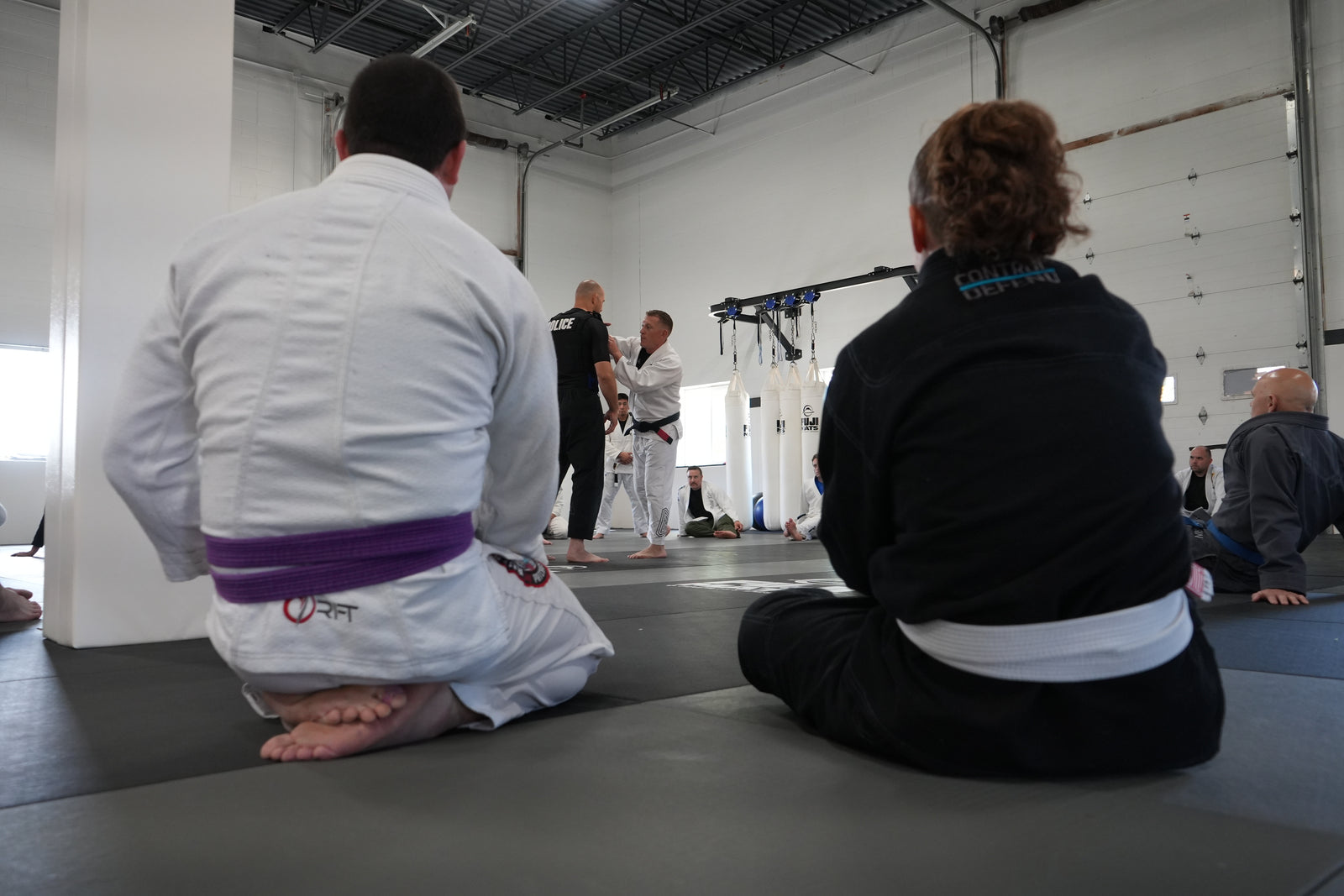Minimize Injuries & Liabilities Through Consistent Jiu Jitsu Training

Over the past several years, Law Enforcement has seen a significant increase in demand for transparent, accountable, and safer encounters - particularly during arrests or potential confrontations. However, most agencies continue training old, useless defensive tactics with the sole purpose of checking a box. While you can certainly keep doing things the same way you've always done them, you just can't expect different results.
So, how do we progress forward and ensure safer interactions between officers and suspects, while also reducing injuries and liabitlies? Jiu Jitsu is the answer.
What is Jiu Jitsu
Brazilian Jiu Jitsu (BJJ) is an art that teaches you how to use leverage and body positioning over brute strength. It is nicknamed the "Gentle Art," mainly due to the fact that it typically doesn't involve striking. Jiu Jitsu has proven time and time again that a smaller person can defend and subdue stronger and larger opponents. This philosophy aligns well with the principles of reducing harm and engaging safely in law enforcement roles. It's also an art that can be trained consistently with low risk of injury, as proven by BJJ schools across the country, where students train several days per week, all year-round.
Reducing Injuries on the Street Through BJJ
BJJ has the potential to defuse confrontational situations quickly with minimal harm, primarily due to its approach to neutralizing opponents using grappling techniques and control holds rather than striking and other techniques that have potential for significant injuries. A fundamental knowledge of grappling allows law enforcement officers to control a suspect without causing unnecessary injury and relying on intermediate weapons like Taser, O.C. and baton, which almost always escalate situations that don't need to be escalated.
Moreover, as BJJ practitioners are repeatedly exposed to these physical engagements, they develop a refined understanding of body control and resistance, which can minimize accidental injuries. This also leads to improved decision-making in stressful situations, reducing the potential for excessive force.
Liability and the Impact of BJJ Training
From a liability perspective, integrating BJJ as part of mandatory police training helps provide a framework for better hands-on skills. Over time, this will build the officer's confidence - which makes them more calm in use-of-force encounters - which ultimately reduces the potential for unnecessary and/or excessive force. It's a positive domino effect of consistent training. The use of BJJ techniques, when applied correctly, are safer and less likely to cause significant harm compared to most of the tactics the industry has been training for decades. Jiu Jitsu can also be trained against opponents resisting with 100 percent intensity, making it realistic and adding stress inoculation to the officers training routine. This has great carry over into the real world when officer's find themselves needing to go hands-on with a suspect.
There are also other long-term benefits that come with consistent Jiu Jitsu training, in addition to better control and defense tactics. The biggest benefits include improved mental and physical health of the officer and improved morale among officers who train.
Go Train
While the idea of incorporating martial arts into police training isn't new, Brazilian Jiu Jitsu offers specific advantages due to its safer, control-based approach. Sheriff departments, like that in Marietta, Georgia, and Gloucester Township, New Jersey, have already started implementing BJJ training for their officers with positive results. By cumulatively reducing injuries and liabilities, Jiu Jitsu can significantly contribute to the evolution of safer, more effective police use-of-force.
If you department looking to start trading Jiu Jitsu? Learn more about our Jiu Jitsu Five-O agency training program here and let us show you how we can help:
https://www.jiujitsufiveo.com/pages/instructor-certification



